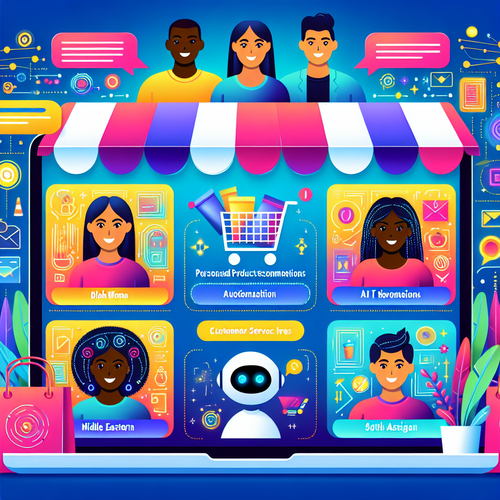
Exploring the Impact of AI on E-commerce Trends
Exploring the Impact of AI on E-commerce Trends
The e-commerce landscape is undergoing a significant transformation, driven by advancements in Artificial Intelligence (AI). As online shopping continues to grow, businesses seek innovative ways to enhance customer experiences and streamline operations. AI technologies are emerging as key players in this evolution, paving the way for a more personalized and efficient shopping environment.
AI in Personalized Shopping Experiences
One of the most striking impacts of AI on e-commerce is its ability to provide personalized shopping experiences. AI algorithms analyze customer data to create tailored recommendations based on purchasing history, preferences, and browsing behavior. This level of personalization helps retailers drive conversions and increase customer satisfaction.
Real-Time Recommendations
AI-powered recommendation engines can suggest products in real-time, guiding customers through their shopping journey. For instance, when a customer views a product, AI can analyze similar items and recommend complementary products to enhance their experience. According to a recent study, personalized recommendations can increase sales by up to 30%.
Chatbots and Customer Service
AI chatbots are revolutionizing customer service in e-commerce. These virtual assistants handle queries, guide customers, and provide support 24/7. AI chatbots learn from interactions, continually improving their responses and customer interactions. This not only elevates customer satisfaction but also reduces operational costs for businesses.
AI in Inventory Management
Effective inventory management is crucial for e-commerce success. AI technologies assist businesses in predicting demand, optimizing stock levels, and reducing waste. Predictive analytics help retailers understand trends and consumer behavior patterns, ensuring that products are available when customers need them.
Automating Inventory Processes
AI can automate various inventory management tasks, such as tracking stock levels and reordering products when necessary. This minimizes human error and enhances operational efficiency. Retailers who utilize AI-driven inventory management report significant savings and improved fulfillment rates.
Streamlined Supply Chain Operations
Beyond inventory management, AI contributes to streamlining the entire supply chain. By analyzing data from suppliers, logistics providers, and customer orders, AI can identify bottlenecks, optimize routes, and predict delivery times. This ensures that products reach customers swiftly, further enhancing their shopping experience.
The Future of AI in E-commerce
As AI technologies continue to advance, their impact on e-commerce will only grow more profound. Businesses that embrace AI-driven solutions will likely gain a competitive edge, effectively meeting customer expectations in an increasingly digital marketplace.
For further insights into the evolving technology landscape, check out our previous article on Harnessing AI for Improved Cloud Security.
Conclusion
AI is at the forefront of transforming e-commerce, providing personalized shopping experiences and optimizing operations. As retailers adopt AI solutions, they enhance customer satisfaction and streamline their processes, paving the way for a more innovative and efficient shopping environment.















